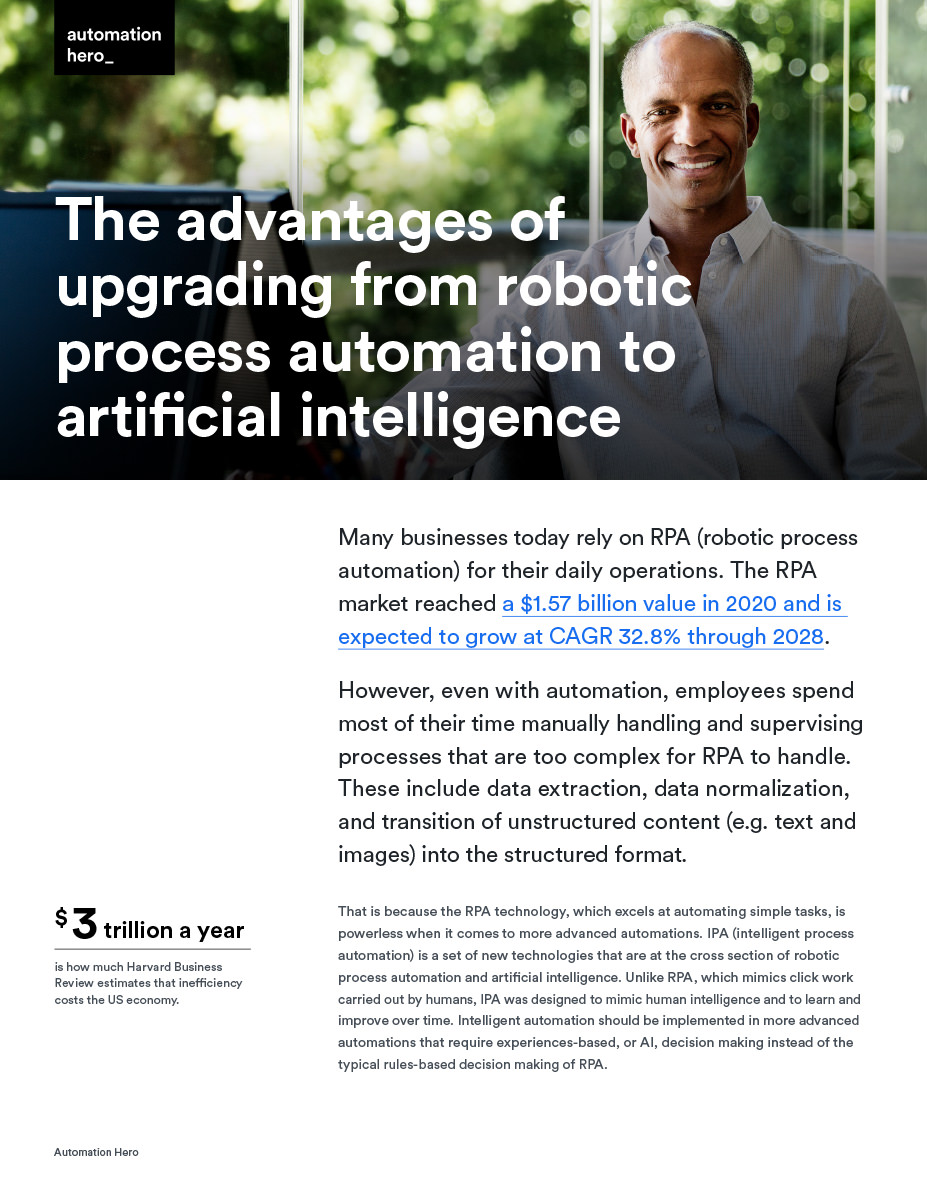Ebook
The advantages of upgrading from robotic process automation to artificial intelligence

Perhaps you’ve implemented RPA in your company. You may or may not have seen improvements and hit the goals or metrics you were hoping to achieve. Whether you’ve seen success or not, there’s still room for improvement by adding AI.
In this piece, we’ll walk you through the differences between RPA (robotic process automation) technology and IPA (intelligent process automation), and spell out the advantages of each.
For example: even after implementing automation, many employees still spend hours of time manually handling processes that are too complex for RPA. These include data extraction, data normalization, and turning unstructured content (e.g. text and images) into a structured, usable format.
- Lorem ipsum dolor sit amet, consetetur sadipscing elitr, sed diam nonumy eirmod tempor invidunt ut labore et dolore magna
- Lorem ipsum dolor sit amet, consetetur sadipscing elitr, sed diam nonumy eirmod tempor invidunt ut labore et dolore magna
- Lorem ipsum dolor sit amet, consetetur sadipscing elitr, sed diam nonumy eirmod tempor invidunt ut labore et dolore magna
Download the Ebook
Get your free copy now!

SOC for Service Organizations
close
Automation Hero will track how you use the emails (e.g., at what time you open which part of the emails) sent by Automation Hero. If you have provided a separate declaration of consent that cookies for tracking your usage of the website and/or apps may be placed on your device, Automation Hero will also connect the information about your use of Automation Hero’s websites and apps (e.g., which information you open) collected by the tracking cookie to such information in so far as possible. Automation Hero will analyze such information, to identify your interests and preferences and to communicate with you in a more personalized and effective way, e.g. by providing information that you are likely interested in, like information on new technologies or products of the Automation Hero group that are likely relevant to you.







